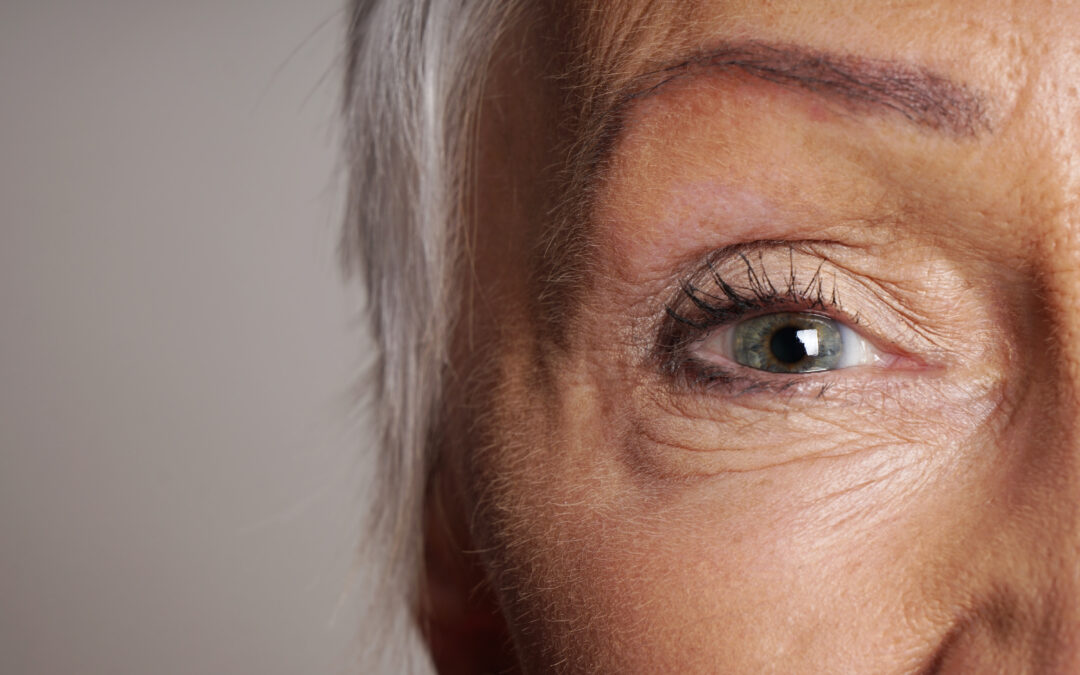As we age, it’s imperative we focus on our eye health. All those years of working, watching our children grow and new technology, has an impact on our eye health. Some of the things you may want to be wary of are changes in your eyesight, like those little black floaters which could be cataracts, or glaucoma. Please note: this is not medical advice and you should always talk to your optometrist or ophthalmologist.
What are those black floaters and what do you do if you notice them?
If you start to notice black or gray specks, strings or cobwebs in your eyes, it’s time to see an eye doctor. But what are they?
Vitreous, or the jelly-like substance in our eyes, can become less jelly-like and more liquid-like as we age, according to the Mayo Clinic. When the fibers within the vitreous clump up, they cast shadows in our retina. It is imperative you see an eye doctor about this issue as they can be caused by more than just age.
Be sure to write down any symptoms and when you experience them. The more information you can provide, the better your eye doctor can treat you.
Let’s talk Cataracts
Cataracts are incredibly common. More than 50% of Americans over the age of 80 actually have cataracts or have had cataract surgery, according to Medicine Plus.
Some of the things to be on the lookout for include:
- Blurry vision
- Faded colors
- Glare around headlights, lamps, etc.
- Double vision
- Frequent change in eyewear prescription
- Not being able to see well at night
Cataracts are typically a slow process. One does not typically wake up with cataracts so it’s important you see your Optometrist often and be candid with any symptoms you may be experiencing.
As with any eye condition, age isn’t the only cause of cataracts. If you are a smoker, living with diabetes, or hypertension you may be at a higher risk for cataracts. Talk to your eye doctor about how to treat your cataracts.
Glaucoma
Glaucoma is a common disease that we need to be aware of as we age. Glaucoma damages your optic nerve when fluid builds up in the front of your eye, putting pressure on it. There are actually two types of glaucoma and it’s the leading cause of blindness in people over 60. The good news is that glaucoma can be prevented!
The first type of Glaucoma happens gradually and does not cause vision changes at first, making it incredibly important to see your Optometrist regularly.
The second type is sudden and warrants an emergency call to your eye doctor. This type of glaucoma can cause blindness fairly quickly so it needs to be treated immediately.
It is crucial you see an eye doctor if you’re experiencing any changes in your vision, and have regular eye exams.
How do you keep your eyes healthy?
First, you need to sleep. Sleep is important to helping your eyes get the rest they need to rejuvenate daily.
Next, check your diet. Is it eyesight friendly? Stick to fatty fish and leafy green vegetables. The vitamins and nutrients in fish and leafy greens are essential to keep your macula (aka the part of the eye responsible for central vision) healthy, according to Bausch and Lomb.
Finally, protect your eyes. Grab sunglasses when you are outside and cut down on blue lights (cell phones and the like) when you are indoors. Prevention is the key, so remember that harmful UV light and blue light can cause severe damage.
As we age, keeping our eyes sharp is vital to enjoying life to the fullest. We want to be able to see well when we go on vacation and hang out with the grandchildren. It’s never too late to make eye health a priority.


